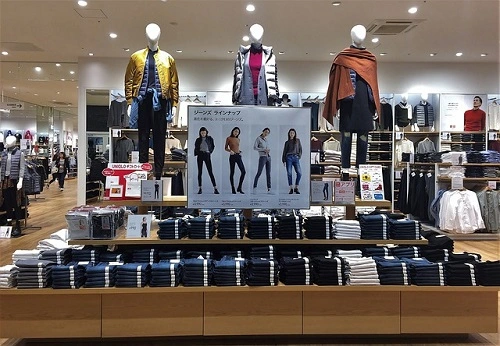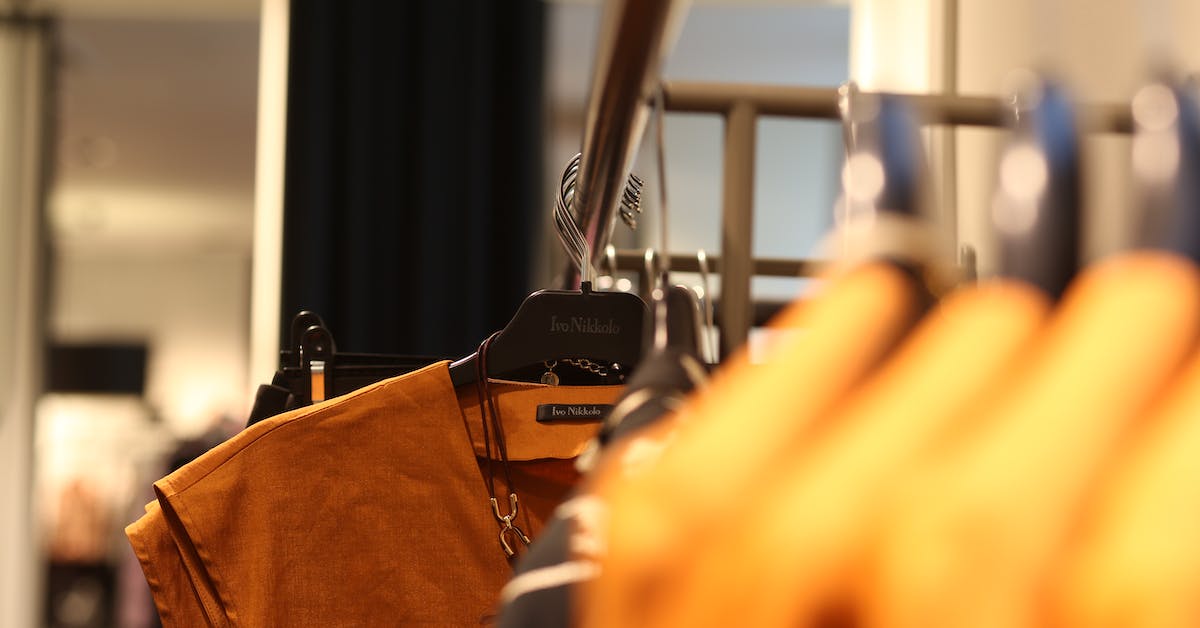Wondering how you can make your clothing store stand out in a busy shopping mall or high street environment? The fight for customers is tough these days, but there are things you can do to appeal to your target market.
As well as strong branding, careful pricing, and good store positioning, you also need to consider the aesthetics and functionality of your store. There are lots of creative ways to display clothes, but they are not always the most practical. This means your display might draw attention, but it won’t convert to sales, as customers have to jump through too many hoops before they can finally get their hands on a garment. Your store should consider ease of accessibility as well as style.
You’ll also need to balance the availability of space with the amount of stock you have. It can be tempting to throw as much stock on your shop floor as possible, but if it makes the space look cluttered and untidy, it’s better to hold some garments back.
Here are some of our tried-and-tested ways to display clothes in a retail store in a way that entices customers and encourages them toward the fitting room.
1. Start at your walls
In an empty store, the obvious place to display items is on your walls. You can add shelves for large jumpers, jeans, and other items that look better folded. Shelves are also great for accessories such as shoes, bags, and glasses. Alternatively, hanging pegs, wall-mounted rails, and wall racks on slatwall panels offer other ways to showcase your wares for easy browsing.
When using your walls, aim to place items no higher than eye level, as customers won’t want to stretch or climb to look at garments. And they’re more likely to simply walk away instead of asking for help. That doesn’t mean the upper half of your walls are wasted space. They are a great opportunity to add branding elements, signposts, and other decorations that will enhance the look of your store.
2. Mix up your display options
Keep your store fresh and interesting by using a variety of merchandising tools. Use tables to create small piles of neatly folded items and stacking baskets for accessories like scarves or gloves. Floor racks, cubes, and plinths add a unique aesthetic and are great to keep near the front of the store to grab the attention of passers-by. Just make sure to keep the area tidy at all times – clutter will create the wrong impression of your brand.
3. Spread out
You don’t have to keep your best-selling items in one place. Make sure they are impossible for shoppers to miss by placing them in a few different spots around the store – perhaps utilising different display options. Not only will this increase awareness of this product, but it will let you see what the most popular display option is so that you can reuse it in the future.
This increases the opportunities for cross-selling. Place your best-selling item with different garments to upsell these to your customers.
4. Use mannequins
Styling a mannequin can be a fun and effective way to cross-sell items and show customers how garments might look when worn. Make sure your mannequins are on-brand and incorporate them into bigger scenes where possible – in your shop window, for example. This will make them stand out and show your clothes in the best possible light.
When using mannequins in-store, make sure they don’t block the aisles or distract from the items you are trying to sell. The mannequin itself is not the star – the clothes are!
5. Space out your rails
Have you ever tried to view clothes when there are too many items on a rail? It’s impossible. The only way to see a garment is to pull it off the rail, but then it risks getting tangled or knocking other items off.
If you want to use rails in your store, they can be a great, versatile option. But don’t fill them up too much. Space out the items to allow for good airflow and easy browsing access.
Not only does it make it easier for customers, but it boosts the appeal of your items, giving them a luxury aesthetic. You have to find the balance between too many clothes and so few clothes your store looks empty.
6. Merchandise your fitting rooms
If your customers have made it all the way to the fitting room, there is a good chance they are looking to make a purchase. Capitalise on this intention by placing a few accessories in communal changing room areas. This can increase the number of impulse purchases your customers make.
7. Keep your clothes straight
No matter how you choose to display your clothes, you need to make sure they’re in the best possible condition. Creased clothes with unravelling seams are not going to sell, no matter how creative your merchandising is. Make sure every garment is pressed or steamed to perfection and presented in a way that makes it look good. And if you do find any faulty pieces, remove them from sale.
It’s not good enough to only do this once. You’ll need to regularly check your wares to ensure they’ve not been damaged or creased by customers.
8. Choose a theme
Some stores like to pair all trousers together, shirts on one rail, and jackets on another. While other stores prefer to colour coordinate or rearrange according to brands. It can be really effective to create a rainbow around your store.
Get in touch today!
And whatever you do with your garments, keep your display furniture on the same wavelength. Every single thing in your shop should be chosen according to your theme. If you need any help with display options and themes, Valentino’s Displays is here to help. We have a huge range of retail fittings and accessories, so you can be sure to find whatever it is you need. And we have a bespoke service too, so we can create items perfectly tailored to your store brand and aesthetic. Get in touch today, and let’s kit your retail unit out!


